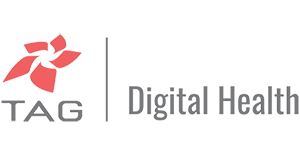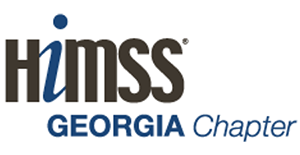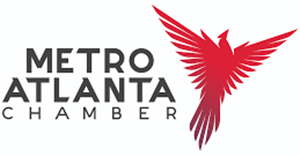Benefits of Hiring Us as Your Healthcare Software Development Company
We have extensive experience working on digital healthcare software development projects, enabling us to create customized solutions that effectively address the specific needs and challenges faced by our clients in the healthcare industry.

Improved Accessibility & Automation
Enhancing access and quality of care through digital technology while streamlining Revenue Cycle Management by automating repetitive, manual processes for greater efficiency and accuracy.

Digital Transformation
Modernizing medical device technologies and clinical workflows with digital solutions while building care coordination platforms that support the shift from fee-for-service to value-based care models.

Healthcare Innovation
Adopting advanced digital health software solutions such as telemedicine, remote patient monitoring, and artificial intelligence (AI) to enhance care delivery, expand access, and enable proactive health management.

Security & Compliance
Protecting patient data from cybersecurity attacks and ransomware through robust security protocols, continuous monitoring, and compliance with healthcare data privacy regulations.
Why Choose Us as your Trusted Healthcare Software Development Company
Telliant is your trusted medical software development firm transforming healthcare IT through product development, product design and strategy and software maintenance services.

HIPAA Compliant
We develop software that is HIPAA compliant and adheres to healthcare industry regulations and standards, ensuring the security of your data privacy.

Agile Methodology
We adopt agile methodologies in our healthcare software development process to develop software that is patient centric improvise productivity and maintain transparency .

Engagement Models
We provide flexible engagement and delivery models for our healthcare software development projects, prioritizing our clients’ needs, to create solutions that align with their requirements.

Healthcare Expertise
With over 14 years of experience as a custom healthcare software development firm, we specialize in transforming digital health and patient care through innovative healthcare solutions.

Software Quality
All processes at our healthcare app development company are designed to create high-quality software that performs reliably under any conditions and is safeguarded against external threats.

Robust Architectures
As a leading healthcare software solutions development firm, we adopt fail-safe mechanisms, effective error-handling processes, and a robust architecture to create innovative and sustainable products. This approach ensures consistency and reliability in our offerings.
Providing Cutting Edge Digital Healthcare Software Development Solutions
Telliant is committed to and very involved in the healthcare, technology and digital health communities in its home state of Georgia. We have executives on the boards of or are members of multiple leading organizations in the state.

5,000+ members with 200+ digital health companies working together to push the edge and define the future of digital health.

We’re proud of our ongoing engagement with the Georgia chapter of HIMSS, which brings hundreds of healthcare IT leaders together to educate, inspire and lead the next wave of digital health.

We also have senior leaders of the company on the boards of the Metro Atlanta Chamber of Commerce (MAC) Bioscience Council.
A Look at the Diverse Healthcare Software Solutions We Develop
As a top healthcare software development company, we prioritize creating and delivering software solutions that address the needs of patients and healthcare providers, enhancing the quality and efficiency of medical services
Medical Billing Software
Streamlining the invoicing process through automation to reduce billing errors and accelerate claims management.
Patient Management Software
Cloud based patient management software helps healthcare operations by allowing easy access and securing patient data online.
Hospital Management Software
Supporting hospital administration with daily operations, including medical billing, inventory management, outpatient services, and bed management.
Healthcare CRM
Custom relationship management software enhances patient care, fosters patient retention, and strengthens the relationship between healthcare providers and patients.
E-prescribing Software
Facilitates the direct exchange and updating of medical prescriptions with pharmacies, enhancing the efficiency and quality of patient care.
mHealth Apps
Developing mHealth apps that not only simplify tasks for patients and healthcare professionals but also educate by delivering accurate and timely information, including emergency resources.
Practice Management
Physician practices are seeking new ways to fill the revenue gaps created during the pandemic. As a healthcare software product development company, we’re building systems that optimize the clinical and financial performance of physician practices while also supporting their drive to create a better patient experience.
Medical Imaging Software
The future of medical imaging is reliant upon computational speed and technology improvements that contribute to deeper visualization and better analysis. AI and ML will become increasingly more important to use as tools for medical image interpretation and diagnosis.
Resources Related to Healthcare Software Development Services
Insights and Resources on Our Capabilities and Trends in Healthcare Technology.
Frequently Asked Questions Related to Healthcare IT Services
We create custom software solutions strategy, design, and development for clients in the healthcare industry. We focus our expertise on electronic health records (EHRs), revenue cycle management, telemedicine platforms, engagement tools like patient portals, data analytics, reporting, and data security to streamline the healthcare process, improve outcomes, and improve operational efficiency within clinics, hospitals, and healthcare businesses. Essentially, we assist healthcare companies in enhancing healthcare delivery while ensuring compliance with all regulatory requirements through technology.
The cost varies widely based on complexity and scope, ranging from $10,000 for smaller projects to hundreds of thousands for more significant initiatives. At Telliant, we often start with smaller engagements to build trust and alignment between teams, then scale to handle more extensive needs such as custom software development, updates, testing, and ongoing maintenance. We collaborate closely with clients to tailor solutions that fit their budgets and achieve their business goals.
Integration with third-party platforms is often a core component of our custom software projects. Working with APIs are a standard practice for our team. We frequently connect external software platforms and programs to our clients’ solutions to enhance functionality, streamline workflows, and improve patient interactions in healthcare environments.
Every health tech company will face many common challenges while building its software solutions. The top challenges are:
- Navigating complex healthcare regulations like HIPPA, GDPR, and many regional standards to ensure patient data is secure and private.
- Seamlessly integrating with existing systems and third-party platforms is essential but often presents technical challenges due to the varying standards and protocols.
- Securing healthcare data should be at the top of every healthcare services company’s priority list, given the ever-expanding patient data collection.
- User Experience Design balances simplicity and functionality to accommodate diverse user groups, including clinicians, administrators, and patients.
- Scalability and performance are important given the stress that software often experiences as healthcare organizations grow or adopt new technologies.
Patient data is ever-growing, from personally identifiable information (Names, Addresses, and Social Security numbers) to medical health records and financial information; the responsibility to secure it is a top-level challenge.
- Implementing strong encryption
- Using multi-factor authentication (MFA)
- Adopting a zero-trust security model
- Training employees in cybersecurity best practices
- Scheduling regular security audits and risk assessments












































